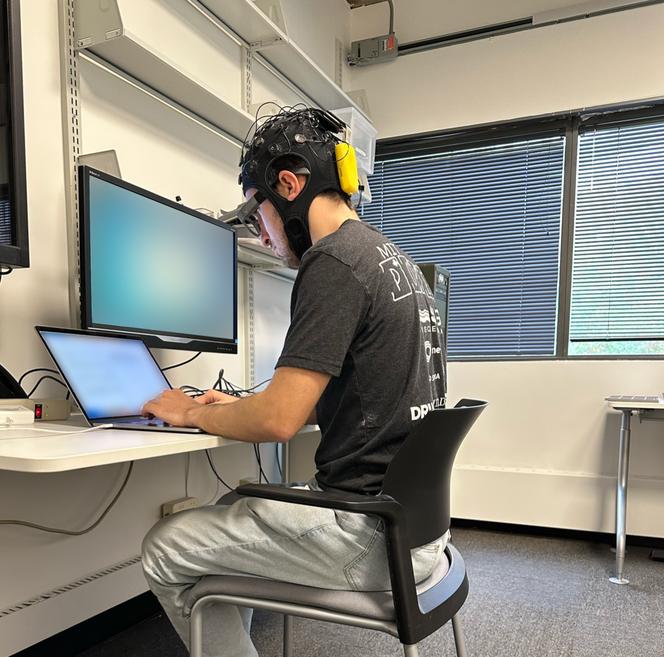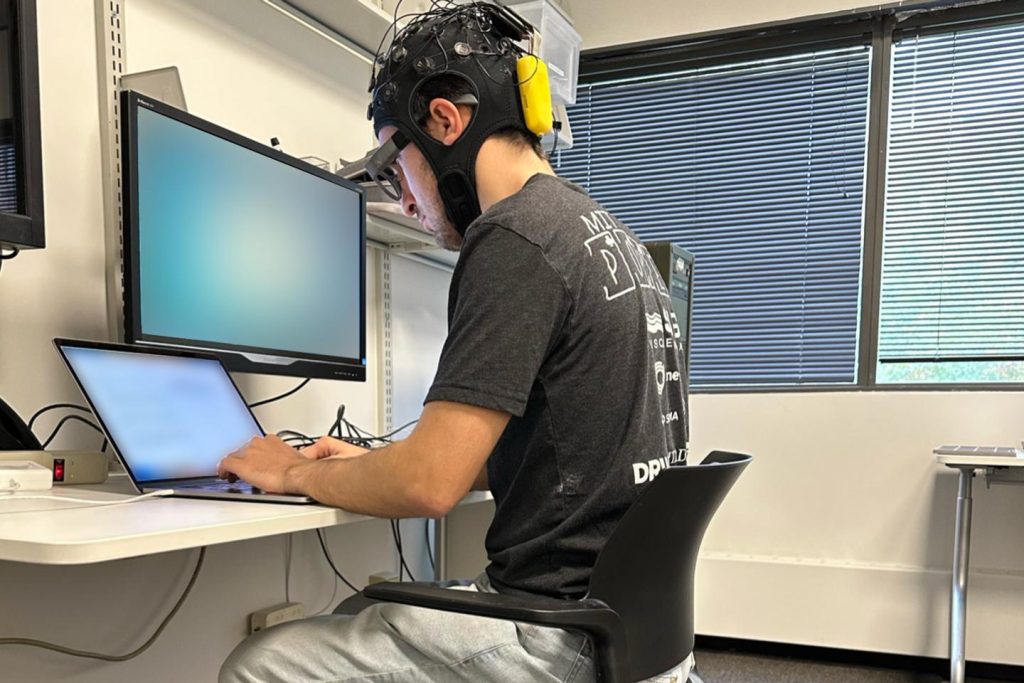
There are 800 million weekly users of ChatGPT worldwide − double the number from four months ago. But do we really know if using this artificial intelligence (AI) tool will have consequences on brain function? The answer is yes, according to neurotechnology specialists at the MIT Media Lab in Cambridge, Massachusetts.
Under the direction of French researcher Nataliya Kosmyna, the team conducted a pioneering study on 54 volunteers aged 18 to 39 from around a dozen countries. Students and postdoctoral researchers from the Massachusetts Institute of Technology (MIT), Harvard University and Wellesley College − all in the Boston area − were equipped with headsets that read their brain activity – specifically, the flows of information moving through different brain regions, observed by the Dynamic Direct Transfer Function (dDTF), which provides a more comprehensive picture than a standard electroencephalogram. They were asked on three occasions to write essays, either with or without ChatGPT, and later recall their work. Four months later, the 18 who agreed to return switched roles: Those who had used AI no longer did, and vice versa.
You have 75.77% of this article left to read. The rest is for subscribers only.

